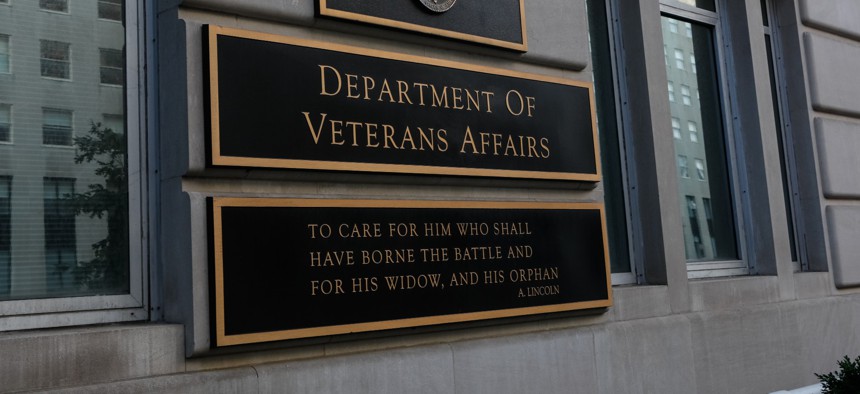
Getty Images
VA Touts Improvements But Warns of Challenges for Digital GI Bill Platform
The Veterans Benefits Administration is still relying on ‘many legacy IT systems” as part of its digital GI Bill platform, which officials said were causing challenges in keeping up with emerging technologies in congressional testimony on Wednesday.
The Department of Veterans Affairs’ modernization efforts for its education benefits delivery system have led to improvements and faster delivery times, officials told a House panel on Wednesday, despite challenges due to reliance on legacy IT systems.
Ronald Burke, deputy undersecretary for the Office of Policy and Oversight in the Veterans Benefits Administration, said the agency began a "transformative" chapter in its modernization efforts on the digital GI Bill platform after awarding a contract to Accenture Federal Services last year. After years of stalled improvements, failed rollouts and resets, Burke said the agency was now leveraging cloud-based automation and human-centered design to develop a new digital platform for veterans to access and apply for education benefits.
"The goal of this transformation effort is to develop a modern digital platform leveraging cloud-based automation, digital service transformation, human-centered design, world class communications, analytics and other important IT services," Burke told the House Veterans Affairs Committee on July 20 in his opening statement. "This end-to-end system integration greatly reduces the manual burden and allows for enhanced automation of benefits processing."
Burke said that $195 million in CARES Act funding was dedicated to supporting this modernization effort.
The VA released its fourth iteration of the digital GI Bill platform in April 2022, featuring processing improvements that enabled quicker claims processing and less manual processing actions. The agency also released new digital enrollment-processing features and email verification options for students attending institutions of higher learning in January of this year, in addition to enhanced system capabilities for the automation of supplemental claims processing.
However, Burke acknowledged that the system's reliance on "many legacy IT systems" has made it challenging to adapt to emerging technologies while implementing new legislation. The agency has been decommissioning decades-old systems while increasingly automating Post-9/11 GI Bill supplemental claims.
The VA's Education Service automation processing was operating at 56% by the end of March 2022, Burke said, a 23% increase from March 2019.
"I think there's always room for improvement," Ricardo DaSilva, program integration officer for the Veterans Benefits Administration Education Service, said about increasing its automation processing capacities. "Our veterans expect their decisions faster and quicker."
DaSilva noted his office was in the process of rolling out a new application process that would seek to increase efficiencies and provide faster decisions on claims to veteran applicants.







